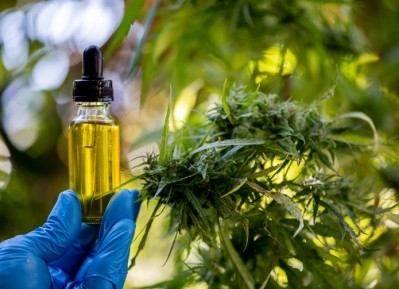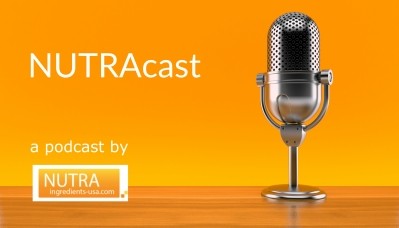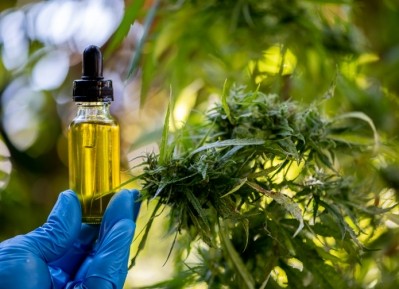Guest article
NPA: Setting safety limit on CBD key part of regulatory process

A number of critics of our industry are calling for Congress to grant FDA new regulatory powers and authorities, such as mandatory product listing. Some are even calling for “DSHEA 2.0.” Making matters worse, some industry representatives are buying into the notion that FDA needs additional powers, even though it’s obvious that FDA is failing to carry out its current responsibilities with its ample current authorities.
There’s no better example of FDA’s failure of will than the regulatory status of cannabidiol (CBD). We all claim to want FDA to use its existing authority to establish a legitimate regulatory pathway for CBD as an ingredient in foods and dietary supplements, considering that 1 in every 5 Americans are already using products containing CBD.
Mixed messages from FDA
Saying the messages from FDA have been mixed is an understatement. The former commissioner stated it would be a “fool’s errand” to remove CBD products from the market, while FDA’s public position is that CBD cannot be lawfully in or as a food or supplement. Yet, thousands of products continue to flood the market, and the agency has only sent warning letters to a handful of companies making the most egregious claims.
As an industry, we must be responsible, scientific, and factually accurate regarding CBD. It’s irresponsible to say that “CBD isn’t a safety issue”, as some industry leaders have done. Not to mention our critics are energetic right now with their long-standing mantra of “the industry is unregulated and doesn’t want to be regulated” to try to get new premarket authorities for FDA.
I’m sure FDA loves the covering fire from the discussion on mandatory product labeling, but FDA needs to address CBD before any of us in industry should entertain discussions about new authorities. This seems like common sense to me, yet some industry leaders seem to get distracted by the “politics du jour” versus staying the course.
Legislation will have to be based on safety assessment
Assuming we in industry still want to pursue CBD legislation — which may be necessary if FDA continues to sit on its hands — it can and will only move forward based on safety. This fact has upset some who would rather amend DSHEA to set a precedent where Members of Congress dive into the determination of which chemicals are foods, which are drugs, which ones you can have access to and which ones you cannot? Is this really what we want Congress doing?
Interestingly, we know that FDA has provided technical assistance on some legislative proposals on CBD, in which FDA pointedly stated safety would need to be addressed. Having been responsible earlier in my career for regulating supplements, and knowing CBD will have to walk down both the drug and food/dietary supplement pathways, I want to see FDA act in a way consistent with precedent and establish a level for CBD consumption that differentiates between the two categories. Dosage and claims are after all what separate our drugs from our foods, at least when they are the same molecule.
For new ingredients, setting a safe level has always been in our DNA, as a part of the NDI process. Furthermore, surveys by our organization and others have shown that consumers overwhelmingly expect that a safe level is already being addressed!
When DSHEA was passed in 1994, it provided FDA with regulatory authority over finished dietary supplement products and dietary ingredients. Under the Federal Food, Drug, and Cosmetic Act, manufacturers and distributors are required to provide safety data on which the submitter will reasonably expect the dietary ingredient to be safe for recommended or suggested use. In fact, health and safety risks specific to CBD were the focal point of the FDA’s May 2019 meeting on CBD. Stakeholders identified ways FDA has the resources and the personnel to establish a daily exposure level for CBD.
Former FDA chief already suggested setting dosage levels
I am not the only former FDA official to suggest this. Former FDA commissioner Dr. Scott Gottlieb, during a March 2019 House Agriculture Appropriations subcommittee hearing indicated the most straightforward path was based on the intended use. When discussing intended use for CBD, Dr. Gottlieb stated the right approach should be “one concentration where the product is a drug and another concentration where the product is a food and or dietary supplement.”
And yes, Red Yeast Rice/Monacolin K is the most obvious example of how the FDA reconciles natural products that appear in the marketplace that have some level of an active pharmaceutical ingredient (API) present in the dietary supplement or food. While some cannot fully comprehend the court’s and the FDA’s rendered decision for Red Yeast Rice, generally, the FDA does this by establishing a level of the ingredient or daily amount via establishing a health hazard evaluation (HHE). To date, the agency has not conducted an HHE, but in 2019, Congress passed the House Agriculture Appropriations bill with language dedicating money to the agency to conduct an HHE.
While based on the pillars of food and drug law, submitters are required to submit safety studied such as a 90-day toxicology study specific to their product and the levels of CBD contained. These data points would serve as the basis for the FDA to establish an initial level allowing FDA to take enforcement actions on products exceeding a daily exposure level that renders the products as unapproved drugs on their face. This would enable the agency to strike the necessary balance between consumer availability via enforcement discretion by understanding the dose a natural product becomes a drug. Then as such, it has drug-like side effects, which we don’t experience in foods or dietary supplements both by our legal framework, which has given us the safest food and drug supply in the world and by the tenets of science.
Rejections show NDI process works
The FDA’s recent rejection of two separate NDI notifications for full-spectrum hemp extract demonstrates that the NDI process works. When they’re applied, DSHEA and its regulations work in the best interest of consumers and industry. DSHEA, enforced properly, is what allows our industry to provide the safest dietary supplements in the world. Our safety record is one huge reason why more than 3 in 4 Americans trust our industry enough to use dietary supplements.
Regardless of whether a submission is CBD or any ingredient, the science must pass the standards of the NDI process. If the hundreds of pages of safety data submitted don’t meet FDA’s threshold, FDA can’t provide the submission with an AKL.
Some trade association executives have inaccurately argued the FDA lacks the authority to set a safe level of consumption for CBD. They’ve even gone as far as saying the agency “doesn’t get to decide in advance of a product coming to market what is the safe level of use.” Statements like these completely ignore the NDI process, a statutory tenet of DSHEA that specifies data must be provided to the FDA on the safety of a new dietary ingredient 75 days before going to the market.
New authorities unlikely to benefit consumers
It’s disturbing that some of these executives are collaborating with fierce industry critics to give FDA new authorities that are unlikely to benefit either the industry or our consumer. Why do we need new premarket authorities like product registration, when FDA can already get labels directly from companies or from the NIH’s database? Is FDA unable to obtain those labels on request? Have they forgotten about the NIH database? We ought to know the answers to questions like these before we start advocating for new regulations upon ourselves.
Perhaps those working to add unnecessary new authorities don’t understand the current ones. However, what’s truly puzzling is that the same folks stating the FDA doesn’t get to decide on a safe level of daily consumption have submitted a citizen’s petition asking the FDA to set a safe level of daily consumption. In their citizen’s petition, they state, “its own assessment of the publicly available scientific literature and, based on a conservative view of the literature available, proposed a safe amount of up to 40 mg CBD per day.” It's peculiar that the same folks are so against efforts to distinguish a daily amount for foods and dietary supplements when they provided the FDA their own.
CBD regulation is ripe for action, and momentum for addressing a framework for foods and supplements is growing on Capitol Hill. CBD is a promising product with untapped potential. Still, if the status quo continues, a few bad actors will eventually ruin the reputation of the CBD market and the dietary supplement market as well.
We have worked hard to ensure consumers are getting the safest and most reliable products in the world. If some industry association executives are really worried about the integrity of DSHEA, I’d advise they re-read the law, its regulations, and how those regulations are applied. They might realize DSHEA works, and that DSHEA also allowed for FDA to set a safe level of consumption for a new ingredient like CBD.
Editor's note: Daniel Fabricant, PhD, is president and CEO of the Natural Products Association.










